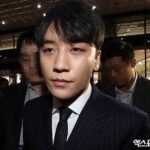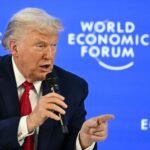 |
The US government has become increasingly explicit with its racism during the second Donald Trump administration. During a summit at the White House on May 21 with South African President Cyril Ramaphosa, Trump openly promoted conspiracy theories claiming that a genocide of white farmers was underway in South Africa. A day later, on May 22, he announced that he would be disallowing the enrollment of foreign students at Harvard University, which has rebelled against the Trump administration’s war on diversity, equity and inclusion (DEI) policies. US media responded immediately with reports stressing the lack of any basis for the claims of a “genocide” of white South Africans, while the decision to bar the registration of international students was suspended after only a few hours when a court accepted Harvard’s request for an injunction. But the two episodes are symbolic in the sense that they show the overt levels of racism apparent in the US since Trump returned to office in January. In particular, they illustrate the opposition to diversity and antisemitism that have been key elements of the racist approach of Trump’s second administration. The racist roots of Trumpism Trump’s racist behavior has come under discussion ever since his days as a real estate developer in the 1970s. A real estate company that he ran in that era ended up facing a trial over discrimination against Black renters. As he began eyeing a political career in the 1990s, the racist remarks kept coming. As recently as 2024, he continued asserting the guilt of five Black teenage boys who were arrested over the 1989 sexual assault of a white woman in Central Park but were ultimately acquitted in 2002. He was also one of the main figures spreading conspiracy claims insisting that Barack Obama, who was born in Hawaii, was not actually eligible to be US president because he had not been born on American soil. During the 2016 presidential election, Trump made blanket statements characterizing Mexican immigrants as sex offenders. The roots of his anti-DEI policies were visible in his remarks at presidential debates, where he insisted that he would do away with “political correctness” — a term that emerged in the US in the late 1980s to describe culture and values showing consideration for minorities, and one that goes hand-in-hand with DEI policy. Trump’s statements won him the support of lower-middle-class white people with lower degrees of educational attainment — people who perceived themselves as “real Americans” and felt disgruntled over being worse off socioeconomically than non-white people and immigrants. What developed from there was a form of “Trumpism” that centered on white nationalist sentiments and an “America First” mentality that repudiated an international role for the US. The racist sentiments that began resurfacing during Trump’s first term (from January 2017 to January 2021) reached their apex with a riot in Charlottesville, Virginia, on Aug. 12, 2017. In addition to the traditional white supremacist groups such as the Ku Klux Klan, a demonstration opposing the removal of a statue of General Robert E. Lee — leader of the Southern forces in the US Civil War — drew new racist contingents including neo-Nazis and members of the so-called “alt-right.” Beyond expressing opposition to non-whites and immigrants, the participants also chanted antisemitic slogans such as “Jews will not replace us.” Multiple injuries and one death occurred. In his comments on the events, Trump avoided denouncing the far-right racist figures spearheading the demonstrations. “I think there’s blame on both sides,” he said at the time. “You had people that were very fine people on both sides.” The situation drew an intense backlash from the Jewish community, which was shocked by the antisemitic rally. Afterward, Trump began reestablishing opposition to antisemitism as a political tool. He was also in a position of urgently needing to voice strong condemnation of antisemitism to unite Israel-supporting evangelicals as a strong support base. As a result, he began portraying any and all criticism of Israel as being “antisemitic.” Combining anti-DEI attitudes with opposition to antisemitism At this point, opposition to DEI and antisemitism became a central focus of the racist attitudes characteristic of Trumpism. Trump went on to lose the 2020 presidential election, and as the arrival of the Joe Biden administration in January 2021 led to stronger pro-diversity policies, discontent rose among Trump’s support base and white conservatives in general. DEI policies are designed to provide social opportunities without discrimination on the basis of one’s race, gender or ethnicity. They can be seen as the product of anti-discrimination policies that stretch all the way back to the abolition of slavery in the 19th century and, more recently, the Civil Rights Movement of the 1960s. Upon his inauguration on Jan. 20, 2021, former President Joe Biden signed an executive order to advance diversity, equity and inclusion, thereby making DEI an official government policy. Trump and his supporters attacked DEI policies as being what they claim to battle: discrimination based on one’s race, gender or ethnic identity. Trump argued that in hiring or academic admissions processes, selectively favoring one race over others results in qualified white people being discriminated against. After the death of George Floyd, a Black man who was killed by excessive police force during his arrest, in 2020, a new movement defined by “wokeness” arose that sought to eradicate discrimination based on race and gender. This prompted even further backlash against diversity initiatives. Opponents argued that the woke movement was forcing its ideology on racism on others and trying to make those who disagreed with it feel guilty. During the following presidential election, Trump ran on a platform of anti-DEI and anti-wokeness. Christopher Rufo, senior fellow at the conservative think tank the Manhattan Institute, issued a “counterrevolution blueprint” for eliminating “left-wing racialism from the federal government.” “Trump can end these programs under his executive authority and replace DEI with a policy of strict color-blind equality,” Rufo wrote. “This action would deliver an immediate shock to the bureaucracy.” Rufo revealed that he has interacted with the Trump camp’s policy team since the summer of 2020. Trump lost the 2020 presidential election, but his supporters were furious at what they believed was a loss caused by voter fraud. The MAGA movement regrouped and grew stronger. The outbreak of the war in Gaza in October 2023 provided an opportunity for Trumpism to use the opposition to antisemitism as a kind of racism. Trump has labeled anti-Israel, pro-Palestine protests on university campuses as antisemitic. Antisemitism is a form of discrimination against Jews that has deep roots in the world of Western Christianity. However, conservative American Jews and the Republican Party characterize those protesting Israel’s genocide of Palestinians as antisemites. Trump has proactively exploited this sentiment, equating DEI with antisemitism. The Trump administration’s accelerating racism After securing his second term, Trump signed an executive order on his first day in office, Jan. 20, that reversed Biden’s executive order on DEI. As a part of his anti-DEI initiative, Trump reshuffled Charles Brown, the former chairman of the Joint Chiefs of Staff, a Black man, in February. Defense Secretary Pete Hegseth had claimed that Brown had been appointed as the chairman of the Joint Chiefs thanks to Biden-era DEI policies, despite not being qualified for the job. The Trump administration’s anti-DEI agenda went full throttle when it came to colleges and universities. It demanded that schools do away with their diversity initiatives, report on and carry out measures to prevent anti-Israel and pro-Palestine protests, and has cut federal subsidies to schools that dare to disobey. Starting with Columbia University, a flashpoint of protests against Israel’s assault on Gaza, colleges and universities across the country began to bend the knee to Trump’s demands. But things changed when Harvard refused to yield to Trump’s demands last month. The university’s president, Alan Garber, who is Jewish, wrote in an open letter that “although some of the demands outlined by the government are aimed at combating antisemitism, the majority represent direct governmental regulation of the ‘intellectual conditions’ at Harvard.” The Trump administration responded by immediately freezing US$2.29 billion in grants to the elite university. Harvard’s act of defiance inspired other schools to join it in resistance, growing the battlefield on which the Trump administration will have to fight. Then there’s the billionaire Elon Musk, who exerted considerable influence during the early days of Trump 2.0 as the head of the so-called “Department of Government Efficiency,” where he fired government workers and contractors en masse and instituted anti-DEI policies. Musk, who is originally from South Africa, constantly harped on about the plight of white South Africans, who he said are being discriminated against and forced off their land. Since taking office, Trump himself has parroted these claims, saying that white farmers in South Africa are being discriminated against in numerous ways, including having their land taken away from them. As far as the Trump administration’s ban on Harvard enrolling foreign students, the consensus is that the courts will almost certainly strike it down. Yet Trump continues to push the policy because he knows how stoking the racism-rooted conflict and division in American society rallies his base. By Jung E-gil, senior staff writer submitted by /u/coinfwip4 |
Related Posts
Latest News from Korea
- NASA’s new moon mission is riskier than it should beWish them well. Next month, four astronauts are expected to board a space capsule called Orion, blast off on a rocket known as the Space Launch System, and exit low-Earth orbit for the first time since 1972, en route to a 10-day flyby of the moon. Unfortunately, their mission will be riskier than it should be. The planned flight is… Read more: NASA’s new moon mission is riskier than it should be
- Seungri and the shadow of ‘Burning Sun’: New allegations in CambodiaSeungri, once one of the best-known K-pop stars and a former member of the idol group BigBang, was forced to retire after a massive scandal erupted in 2019. The incident came to be known as the “Burning Sun” scandal and involved several celebrities and police officers. Seungri was among those implicated, accused of being one of the ring leaders. Now… Read more: Seungri and the shadow of ‘Burning Sun’: New allegations in Cambodia
- Trump demands ‘immediate’ Greenland talks but rules out forceDAVOS, Switzerland — President Donald Trump demanded immediate talks on acquiring Greenland in a hardline speech at Davos Wednesday, but said that while the United States possessed “unstoppable force” it would not use it to take the Arctic island from Denmark. Trump’s quest to take control of Greenland, which he said was needed for national and international security, dominated his… Read more: Trump demands ‘immediate’ Greenland talks but rules out force
- Army’s Special Warfare Command stages wintertime drillsThe Army’s Special Warfare Command has been staging intensive wintertime drills aimed at enhancing its special operations capabilities under extreme weather conditions, the armed service said Thursday. The 12-day drills have been taking place since earlier this month near Daegwallyeong Pass, located in a mountainous region in eastern South Korea, according to the Army. It said the training will run… Read more: Army’s Special Warfare Command stages wintertime drills
- Korea to set up World Cup base camp in GuadalajaraKorea will have their base camp for the upcoming FIFA Cup in the western Mexican city of Guadalajara. The Korea Football Association (KFA) announced Thursday the Taegeuk Warriors will use Chivas Verde Valle, the training facility for the Mexican pro club C.D. Guadalajara, as their training base for the June 11-July 19 World Cup, which will be co-hosted by the… Read more: Korea to set up World Cup base camp in Guadalajara
Latest Entertainment from Korea
- LE’V Steps Into the Light: “Spotlight Soul” Captures the Artistry, Growth, and Glow of a New Era in the 2026 Season’s Greetings CollectionPhoto Credits: CHROMOSOME LE’V Illuminates 2026 with “Spotlight Soul” LE’V enters 2026 with a statement that feels both cinematic and deeply personal. His Season’s Greetings “Spotlight Soul” concept photos reveal a striking evolution — one that merges emotional depth with artistic clarity. The project, released as a collector’s visual experience, celebrates not just another year but LE’V’s firm grasp on identity, craft,… Read more: LE’V Steps Into the Light: “Spotlight Soul” Captures the Artistry, Growth, and Glow of a New Era in the 2026 Season’s Greetings Collection
- KiiiKiii Leesol & Haum Illuminate SPUR x Dior Addict’s January 2026 Issue with Daring Light, Sensual Motion, and New Beauty CodesPhoto Credits: SPUR Dior Starship Entertainment A New Year, A New Iconic Pairing SPUR Magazine opens 2026 with a collaboration that feels both intimate and electric. The January 2026 Issue Pictorial Preview showcases KiiiKiii Leesol and Haum in a visual dialogue infused with Dior Addict’s luminous rebellion. Titled “Light Moves: The Addict State of Mind”, the spread captures the interplay of motion, reflection, and self-definition—a signal… Read more: KiiiKiii Leesol & Haum Illuminate SPUR x Dior Addict’s January 2026 Issue with Daring Light, Sensual Motion, and New Beauty Codes
- Breaking Boundaries: ifeye × KITTO Taiwan Redefine Visual Storytelling in the January 2026 Pictorial — A Fusion of Innovation & IdentityPhoto Credits: Hi-Hat Entertainment The Convergence of Vision and Identity The January 2026 Pictorial from ifeye × KITTO Taiwan marks a defining moment in East Asian creative media. Framed as both a celebration and an evolution, the collaboration bridges art direction, fashion narrative, and technological fluidity to capture a new generation’s pulse. More than a photoshoot, this issue acts as a visual manifesto—an exploration of… Read more: Breaking Boundaries: ifeye × KITTO Taiwan Redefine Visual Storytelling in the January 2026 Pictorial — A Fusion of Innovation & Identity
- Xiaoting in Full Bloom: Kep1er’s Shining Star Redefines Power, Grace, and Global Glamour in Wonderland China’s January 2026 Cover StoryPhoto Credits: KLAP ENTERTAINMENT Kep1er’s Xiaoting Captures the Moment Kep1er’s Shen Xiaoting steps into 2026 as a muse of modern elegance, fronting the January 2026 Wonderland China cover with an aura that’s both futuristic and fiercely grounded. As one of the brightest stars of her generation, Xiaoting embodies the balance between aspiration and artistry that defines global pop’s next chapter. “Confidence is not just… Read more: Xiaoting in Full Bloom: Kep1er’s Shining Star Redefines Power, Grace, and Global Glamour in Wonderland China’s January 2026 Cover Story
- BTS’s V Radiates Timeless Charisma in GQ Korea x Cartier’s February 2026 Cover: A Monument to Modern Elegance and Emotional PrecisionPhoto Credits: GQ Korea – Cartier – BigHit Music. – BTS V x Cartier: The Sound of Stillness and Strength For GQ Korea’s February 2026 issue, the cover unfolds like a cinematic confession. BTS’s V (Kim Taehyung)—known for his magnetic duality of mystery and warmth—joins forces with Cartier, the house synonymous with precision, artistry, and legacy. Together, they create a visual symphony that celebrates… Read more: BTS’s V Radiates Timeless Charisma in GQ Korea x Cartier’s February 2026 Cover: A Monument to Modern Elegance and Emotional Precision
Learn People & History of Korea
- The Evolution of Busan: A Historical Journey Through South Korea’s Second Largest Metropolitan CityAncient Beginnings: The Founding of Busan Busan, known as the second largest metropolitan city in South Korea, has a rich history that dates back to ancient times. The earliest recorded existence of Busan can be traced to the Goryeo Dynasty, where it was referenced as a vital coastal settlement. Its strategic location along the southeastern coast of the Korean Peninsula… Read more: The Evolution of Busan: A Historical Journey Through South Korea’s Second Largest Metropolitan City
- The Evolution of Pyongyang: A Journey Through History, Economy, and Political DynamicsIntroduction to Pyongyang Pyongyang, the capital city of North Korea, serves as a prominent symbol of the nation’s history and culture. Geographically located on the banks of the Taedong River, in the southwest part of the country, Pyongyang is situated within a strategic area that has historically facilitated trade and cultural exchange. The city’s origins can be traced back to… Read more: The Evolution of Pyongyang: A Journey Through History, Economy, and Political Dynamics
- The Evolution of Seoul: From Ancient Korea to Modern Metropolis and BeyondAncient Beginnings: The Founding of Seoul The city of Seoul, known today as the vibrant capital of South Korea, has ancient roots that trace back to the Three Kingdoms period of Korea, specifically the kingdoms of Baekje and Silla. Evidence suggests that Seoul was originally established as a settlement given its strategic geographical advantages. Nestled within the Han River basin,… Read more: The Evolution of Seoul: From Ancient Korea to Modern Metropolis and Beyond
- Exploring Korean Traditional Games in Squid Game: From Season 2 to Upcoming Season 3Introduction to Korean Traditional Games Korean traditional games have long been an integral part of the country’s cultural landscape, offering more than mere entertainment. These games, which range from simple children’s pastimes to complex community activities, hold significant cultural significance and often serve as a means of preserving history and promoting social interaction. Rooted in centuries of tradition, these games… Read more: Exploring Korean Traditional Games in Squid Game: From Season 2 to Upcoming Season 3
- Unveiling the Past and Present of Saju: The Art of Korean Fortune TellingIntroduction to Saju Saju, a traditional Korean fortune-telling practice, is an intricate art that seeks to interpret an individual’s fate based on their birth date and time. The term “Saju” translates to “four pillars” in English, referring to the four critical components derived from these time markers: year, month, day, and hour. This method holds significant cultural value within South… Read more: Unveiling the Past and Present of Saju: The Art of Korean Fortune Telling














